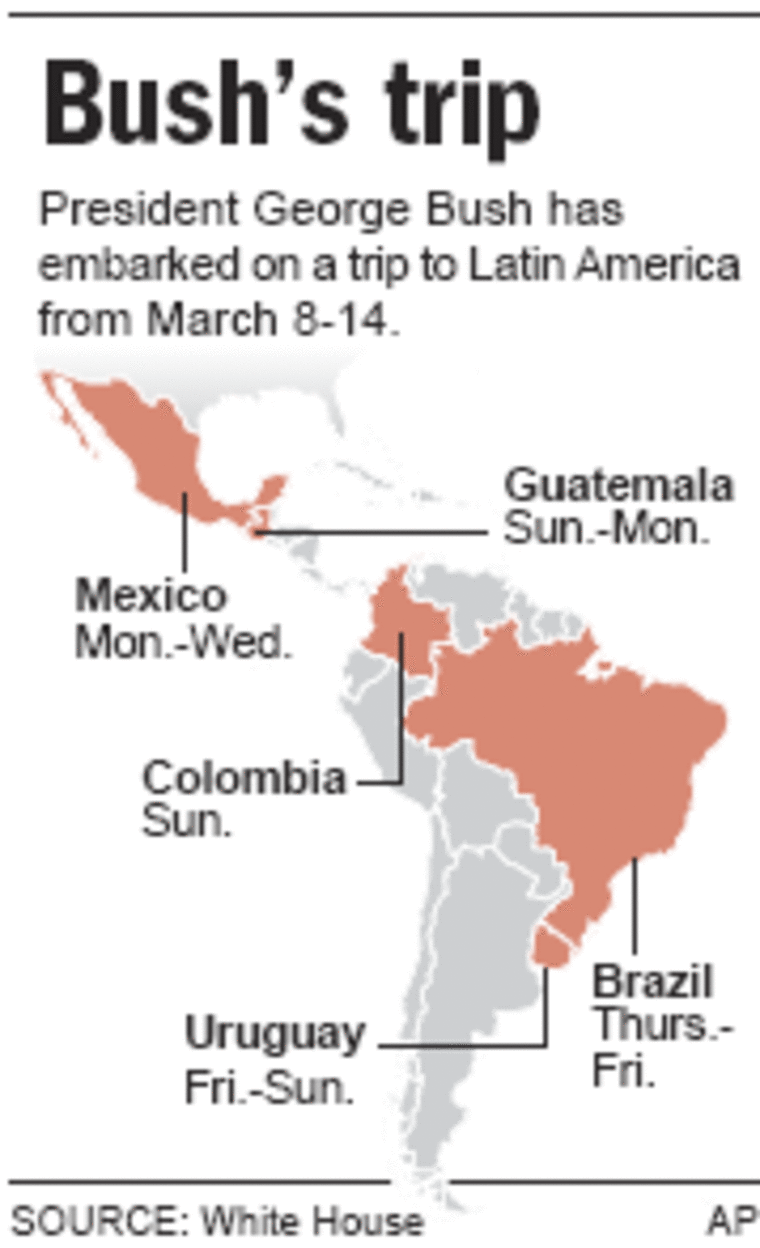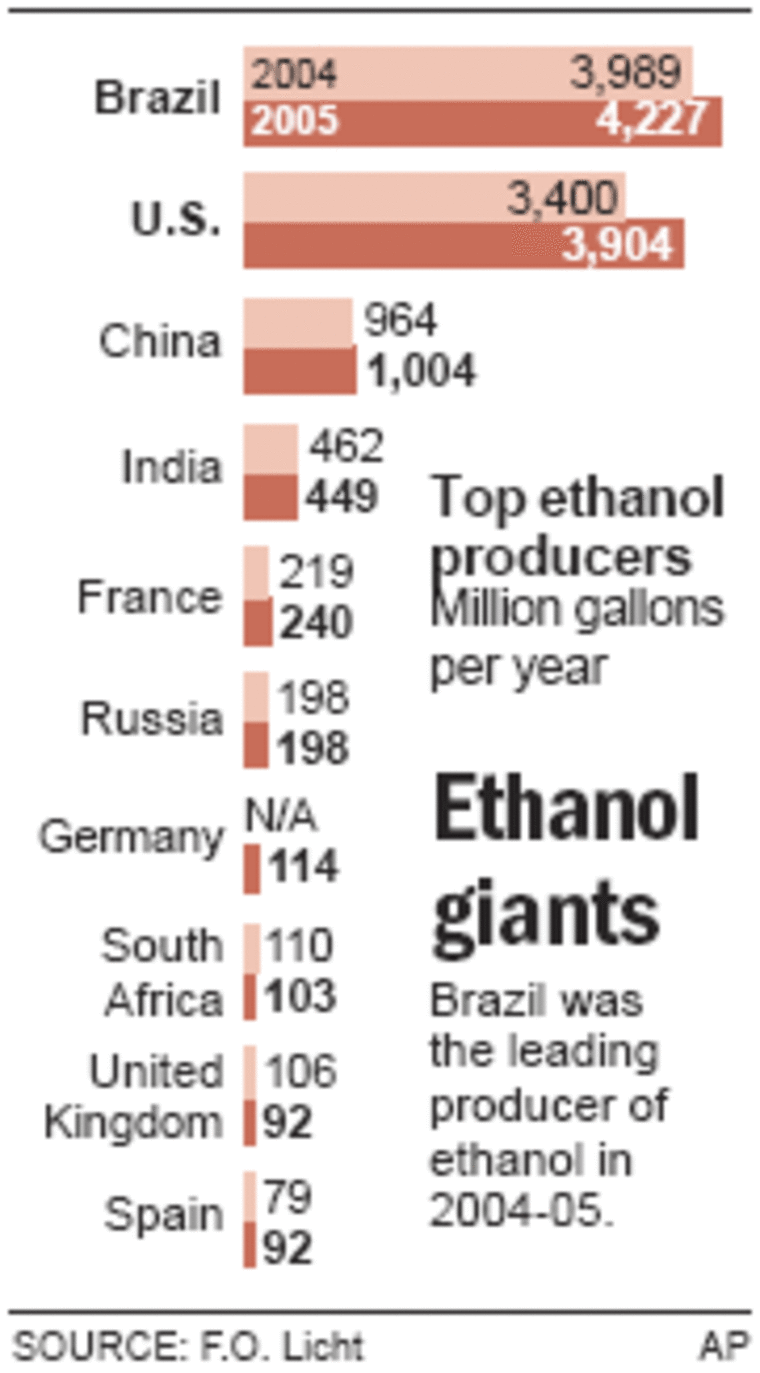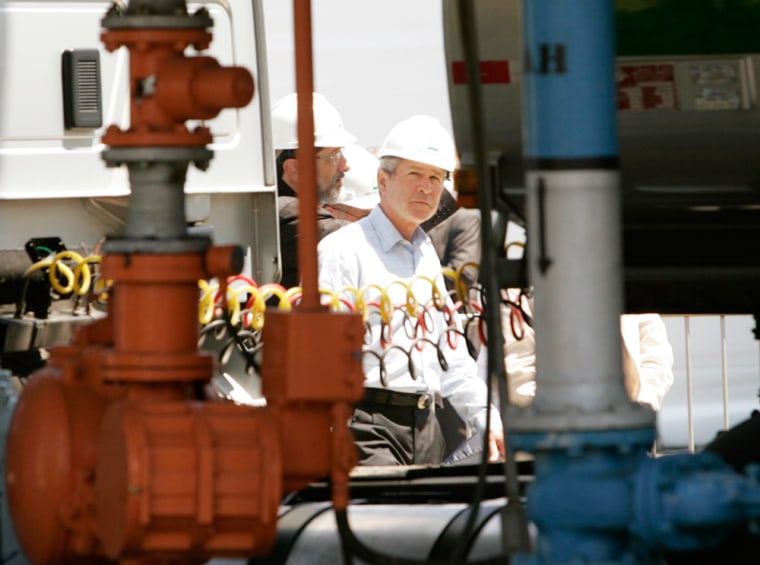Chalk up another round in the feud between President Bush and his chief South American tormentor, leftist President Hugo Chavez.
As Bush announced an alternative fuels agreement with Brazil on Friday, Chavez hurled taunts at the president from Buenos Aires, Argentina — about 1,000 miles southwest of here. Chavez called Bush’s travels an attempt to divide and confuse Latin American nations.
“The future belongs to us,” Chavez told reporters, adding “Oh, ho ho! Gringo go home!”
The Venezuelan leader is staging a tour of the region to rival Bush’s weeklong, five-country visit. Bush shrugged off the fresh attacks.
“I don’t think America gets enough credit for trying to help improve people’s lives,” Bush said at a joint news conference with Brazilian President Luiz Inacio Lula da Silva. “My trip is to explain as clearly as I can that our nation is generous and compassionate.”
Leader who shall not be named
The last time Bush was in South America, 16 months ago, Chavez rallied thousands of protesters against the U.S. leader’s visit. In October, Chavez referred to Bush as “the devil” in his speech at a U.N. General Assembly attended by Bush and other world leaders.
This time, their sparring was more from afar — but no less heated.
“I believe the chief objective of the Bush trip is to try to scrub clean the face of the (U.S.) empire in Latin America. But it’s too late,” Chavez said in a television interview in Buenos Aires, a prelude to a soccer-stadium rally Friday night.
“That may be what people say, but it’s certainly not what the facts bear out,” Bush said, careful never to use Chavez’ name and give the leftist leader more stature than he’s already amassed.

The two were even closer later on Friday, when Chavez addressed an “anti-imperialist” rally at the soccer stadium in Buenos Aires while Bush arrived in Montevideo, Uruguay, across the River Plate.
Chavez is using his country’s vast oil wealth to reach out to ordinary Latin Americans and to court other leftist leaders.
Bush, meanwhile, noted that since he took office, U.S. aid to Latin America has doubled to $1.6 billion last year.
Cherry-picking aid numbers?
Some Latin American critics say Bush’s claim is misleading because it is based on 2001 as the starting point, and U.S. aid had dipped sharply that year, setting an artificially low benchmark.
The Bush administration sees the leftist Silva as a counterbalance to Chavez for influence in the region. As a sign of his standing, Bush has invited Silva to visit the U.S. presidential retreat at Camp David, Md., on March 31.
Focus on ethanol trade
The centerpiece of Bush’s Brazilian stop — the first before he headed to Uruguay, Colombia, Guatemala and Mexico — was a new ethanol development agreement.
The two went in the morning to a large fuel depot for tanker trucks, the backdrop for arguments from Bush and Silva that increasing alternative fuel use will lead to more jobs, a cleaner environment and greater independence from the whims of the oil market. In Brazil, nearly eight in 10 new cars already run on fuel made from sugar cane.
The agreement, signed Friday morning by Secretary of State Condoleezza Rice and her Brazilian counterpart, has the U.S. and Brazil joining forces to promote more ethanol use in nations lying between Brazil and the United States. It also creates new quality standards for the alternative fuel.
Bush says tariff will continue
But there were clear tensions remaining on a related issue: the 54-cent-a-gallon U.S. tariff on imports of Brazilian ethanol made from sugar, a measure designed to help U.S. corn growers. Ethanol can be made from either crop.

Before Bush’s visit, Silva said the tariff was unfair and that he would press Bush to try to get the U.S. Congress to repeal it.
“It’s not going to happen. The law doesn’t end until 2009. And the Congress will ... look at it when the law ends,” Bush said tersely during their news conference.
For his part, Silva joked about the impasse and his inability to change Bush’s mind.
“If I had that capacity for persuasion that you think I might have, who knows? I might have convinced President Bush to do so many other things that I couldn’t even mention here.”
“This is a process,” the Brazilian president added.
‘We will lock our trade ministers in a room’
Bush and Silva also agreed to try to relaunch stalled global trade talks — the so-called Doha round — and Bush said, “We will work together. We will lock our trade ministers in a room, all aimed at advancing this important round.”
U.S. Trade Representative Susan Schwab was staying behind to meet with Brazilian officials on Saturday morning.
Brazil has the largest economy in Latin America.
Protests to Bush’s visit on Friday weren’t as large or as violent as the day before. About 150 protesters gathered outside his hotel, burning an effigy of the American president with a swastika on his shirt and a Hitler mustache.
The protesters chanted, “Bush, go home,” and held up banners decrying American imperialism before a phalanx of military police while Bush and Silva ate lunch and talked to reporters inside.
Later, a crowd of onlookers waved as Bush and his wife, Laura, arrived for a chat with teens at a community center computer lab. But on the way out, a group of about 15 youngsters cursed Bush, calling him “assassin” and saying “go home.” Bush waved and smiled.
